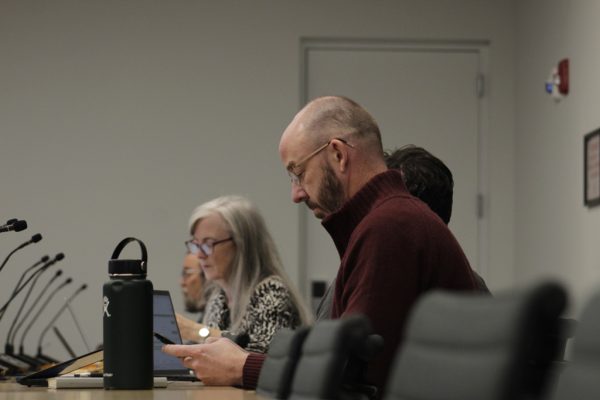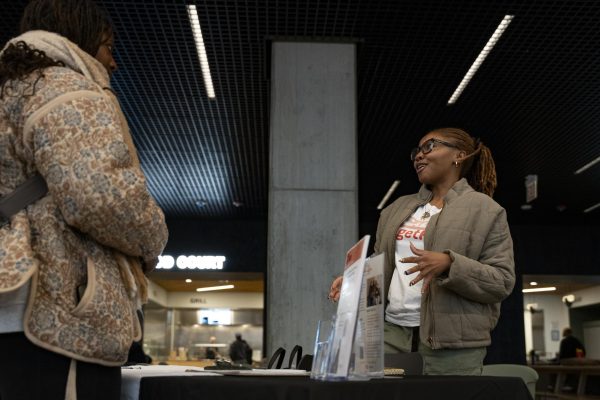College Assembly to unify campus
December 12, 2011
Opportunities for students, staff and faculty to work together on a college campus can be rare. However, the creation of the College Assembly is doing just that by bringing the community together to create change.
The College Assembly is an “information sharing” committee consisting of constituents of student, full- and part-time faculty and staff bodies, which will meet throughout each semester to discuss both internal and external topics of higher education and how they affect Columbia, according to the College Assembly guidelines.
“This is where advocacy is going to start for changing things within the college and where a lot of essentially ‘brainchild ideas’ are going to start,” said Cassandra Norris, junior journalism major and Student Government Association president, who helped form the Assembly.
With the dissolution of the College Council on Dec. 1, as previously reported by The Chronicle on Nov. 7, Mark Kelly, vice president of Student Affairs, and others felt that there still needed to be an opportunity for all bodies of the college to convene and discuss issues that affect the college.
According to Pegeen Quinn, assistant provost, the College Council elected five people last spring to craft guidelines for the Assembly. The members, who met during the summer, included John Green, chair of the Theatre Department, as chair representative; John Stevenson, adjunct faculty in the Humanities, History and Social Sciences Department, to represent part-time faculty; the late Rose Economou, former full-time faculty member in the Journalism Department, for full-time faculty; Quinn as staff representative and Norris to represent students, Quinn said.
She added that both Louise Love, interim provost, and Kelly attended the majority of the meetings.
The Assembly, which was proposed to the College Council on Nov. 4, was dedicated in memory of Economou to honor her efforts to develop the organization, according to Quinn.
“[Economou] was a very strong voice in crafting these guidelines and felt very strongly about certain elements of language that she wanted in these guidelines about a shared voice,” Quinn said.
Economou, who passed away on Oct. 2, taught at Columbia for 21 years and was often noted for her dedication and passion for the college and the students, as previously reported by The Chronicle on Oct. 10.
According to Norris, Economou had a specific agenda for the College Assembly.
“With making these guidelines, she had a very clear vision of what she wanted done, and she was going to get it done,” Norris said. “Sometimes that meant that she was argumentative. Sometimes that meant that she occasionally had to concede to someone else’s valid point.”
The College Assembly will consist of 10 members, according to the guidelines. Constituent members will include one department chair, two full-time faculty members, two part-time faculty members, two staff members and two students.
According to Quinn, Love will stand as the ex-officio and 10th member, but will not have voting capacity.
Presiding committee members are expected to be elected by the end of January 2012, Quinn said. Current representatives of each respective body on campus will elect members.
Committee members will select a topic of discussion, such as student affordability, fiscal issues or education globally, and a member will present the topic at the next meeting, Quinn said. The community will be notified of the discussion topic before the meeting is held, she added.
According to the guidelines, regular assemblies, with the exception of additional special or emergency circumstances, will be held three times per semester. All assemblies are open to the community. Quinn hopes the first official College Assembly meeting will be held in April 2012.
According to Kelly, he was frustrated with the fact that the College Council focused more on by-laws rather than educational content. He hopes the Assembly can provide this element to the Columbia campus.
“As a college, we’re about sharing information and learning from each other,” Kelly said. “I think that is at the heart of what we hope the College Assembly will be—a learning moment for the college. At the conclusion of every assembly, we have a better informed college community, and we have more clarity and purpose on important issues.”






